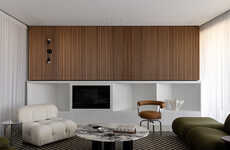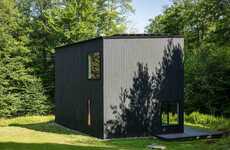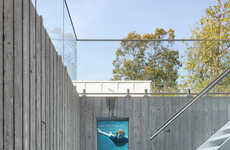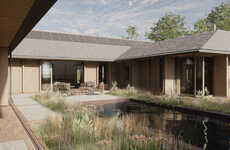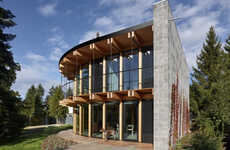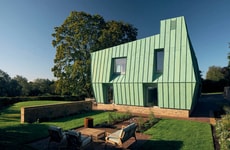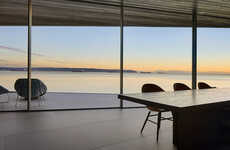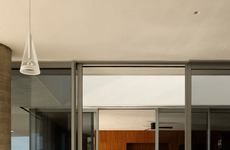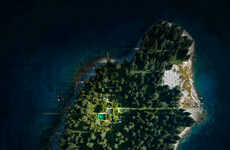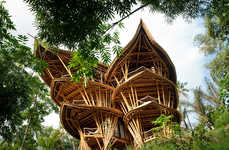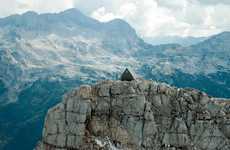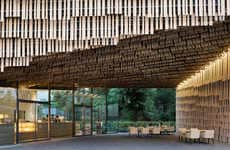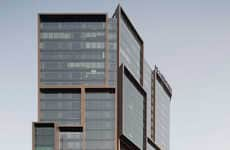
The Contemporary Family Residence Features an Eco Design
Vasiliki Marapas — November 25, 2014 — Art & Design
References: frits & contemporist
Frits de Vries designed the 'West 21st House,' a contemporary family residence located in the Dunbar neighborhood of Vancouver, Canada.
The home has the best of both worlds when it comes to views: both the Pacific Spirit Park and Vancouver's downtown core are visible from the slightly graded plot. Inside, the architects created a flexible, forgiving design plan; one which isn't afraid to buck convention and explore different spatial realities.
To keep the home's energy usage low, the architects specifically designed a passive solar heating system. The system is accompanied by other eco-friendly features, such as high-efficiency windows, high performance cooling and heat recovery and solar hot water heating, to name a few. The interior also features the use of recycled materials.
The home has the best of both worlds when it comes to views: both the Pacific Spirit Park and Vancouver's downtown core are visible from the slightly graded plot. Inside, the architects created a flexible, forgiving design plan; one which isn't afraid to buck convention and explore different spatial realities.
To keep the home's energy usage low, the architects specifically designed a passive solar heating system. The system is accompanied by other eco-friendly features, such as high-efficiency windows, high performance cooling and heat recovery and solar hot water heating, to name a few. The interior also features the use of recycled materials.
Trend Themes
1. Passive Solar Heating Systems - There is room for growth in the development of more efficient and cost-effective passive solar heating systems, particularly in urban locations.
2. Eco-friendly Building Materials - Manufacturers and consumers alike will benefit from the increased demand for and availability of affordable, sustainable building materials.
3. Flexible Design Plans - There is an opportunity for architects and designers to challenge conventional spatial arrangements and create flexible, customizable living spaces that meet the evolving needs of homeowners.
Industry Implications
1. Construction and Engineering - The construction and engineering industry can continue to innovate eco-friendly building practices, materials, and technologies to meet the needs of the growing number of environmentally conscious consumers and homeowners.
2. Renewable Energy - The renewable energy industry has an opportunity to further develop and implement cutting-edge solar heating, cooling, and hot water systems to reduce carbon emissions and make sustainable living more accessible and cost-effective.
3. Interior Design - The interior design industry can embrace the trend towards flexible, customizable living spaces to offer clients dynamic and adaptable solutions that reflect a contemporary lifestyle and a commitment to sustainability.
5.5
Score
Popularity
Activity
Freshness

